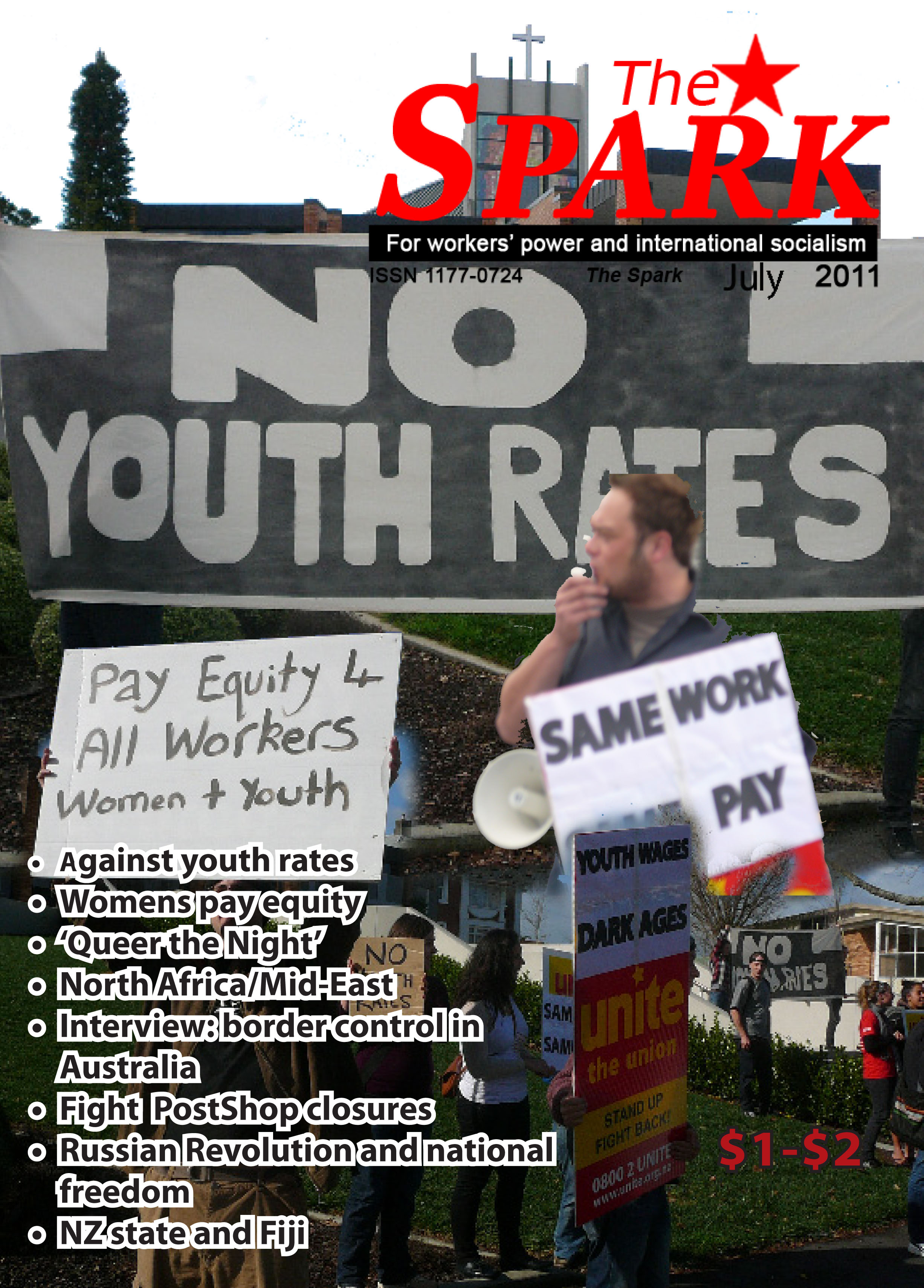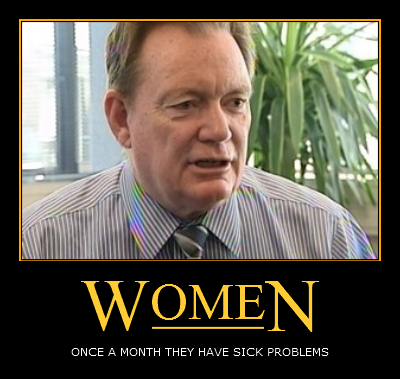From the July 2011 issue of The Spark
On World Refugee Day, the 19th of June 2011, hundreds of people marched in Melbourne under the slogan “unite to end mandatory detention.” After the march Ian Anderson who is on the editorial team of The Spark caught up with leading members of the Socialist Party of Australia, Mel Gregson and Anthony Main.
The Spark: So the movement against mandatory detention of refugees has made headlines in recent months. Could you go a bit into the background of this?
AM: Australia has practiced mandatory detention of refugees since 1992, when it was introduced under the Labor government. Refugees arriving by boats are placed in detention centres while their claims are processed. Often this takes months, and in some cases 6-7 years to process, while the refugees are kept like animals. At various points the mass anger and frustration over these brutal conditions have led to protests and riots. There is also a small but growing solidarity movement on the mainland.
MG: The Howard government tried to negate Australia’s obligations under the UN treaty by processing refugees offshore, at detention centres on Christmas Island, in Nauru, Papa New Guinea and elsewhere. The Rudd government was elected in 2007 on a platform of a “more humane” refugee policy, but ultimately reverted to a similar policy to the Howard government. Most recently, the Gillard government announced a policy of sending refugees to Malaysia. Malaysia is not a signatory to the UN convention, and even deploys state-sanctioned militias to cane refugees. There are numerous deaths and tens of thousands of canings a year. Continue reading “Australian socialists on border controls”
Greenpeace loses battle for charity status

By Alastair Reith
A recent High Court decision has stripped Greenpeace New Zealand of its charity status in this country. The court upheld a 2010 ruling by the Charities Commission that the environmentalist organization is “too political” to be classed as a charity. Greenpeace is challenging the decision. The Commission argued that calls by Greenpeace for peace and disarmament could not be classed as charitable and were political in nature, and that while Greenpeace does not openly advocate breaking the law its members have been involved in illegal protest activity. Greenpeace Executive Director Bunny McDiarmid disputed this, arguing that, “Most of the charities that have got charitable status are very much engaged in change they want to see, positive change for our society today.”
This decision will deal a serious blow to Greenpeace. Apart from the mainstream legitimacy that comes from being registered as a charity, registered groups do not have to pay income tax, and people who choose to donate to them receive their money back in tax rebates. Losing charity status will cost Greenpeace a lot of money in the years ahead, and will discourage those on low incomes from donating. Continue reading “Greenpeace loses battle for charity status”
Read the July issue of The Spark
 July issue of The Spark
July issue of The Spark
Last month the question of equality was blown open publicly and in quite a profound way by three events. The most prominent of these was of course the righteous controversy which resulted from Alasdair Thompson – CEO of the Employers and Manufacturers Association, the mouthpiece of a large section of the capitalist class – justifying the gendered wage gap on the basis of women’s menstruation. Away from the PR and spin-doctoring of the employers and government, who may present themselves as ‘centrist’, this really underlined the deeply reactionary essence of capitalism as it exists right now. We also had in Wellington a large demonstration of queer and transgender people demanding the right to not be bashed in the streets, which has prompted some tentative calls for a new GLBT liberation movement. This has included a large demonstration and organising meetings of up to 85 people. Thirdly, we saw the government indicate a possible reintroduction of youth rates, which was promptly opposed by a protest response within one week. We’ve been involved in the thick of the opposition against inequality and we aim to put The Spark and anti-capitalist ideology into the hands of others involved.
Note: As of July 4, this issue will carry a comprehensive insert which overviews te Mana Party by-election victory and the subsequent foundation hui.
Anti-Youth Rates protests send signal to government (regional round-up, photos)
By Byron Clark, Jared Phillips, and Chris Matahaere
On June 25 Unite and other progressive organisations, as well as socialists, sent a message to the government that any attempt to reintroduce youth rates will be met with resistance. These protests were very much the beginning and will be intensified – up to and including strikes and high school demonstrations – if the government does pursue a reintroduction. The Auckland and Wellington demonstrations went ahead successfully, with the Auckland demonstration being focussed on the head offices of the Employers and Manufacturers Association, whose CEO had in a radio interview justified the gendered wage gap by claiming that women are less productive because of ‘monthly sick problems’. The Auckland protest drew the connection between unequal pay for women and the potential for discriminatory rates to be applied to young workers. Below is a summary of activities in other major cities. Continue reading “Anti-Youth Rates protests send signal to government (regional round-up, photos)”
Alisdair Thompson and the Anti-Worker Laws

By Mike Kay
The comments made by the head of the Employers and Manufacturers Association that pay discrimination against women was justified because they may take sick days when they have their period has rightly provoked widespread outrage. It seems hard to believe that Alisdair Thompson thought he could get away with spouting such crap. But the fact is that he has the arrogance born of someone who has been getting his own way for years. His comments have to be seen against the sustained attack on the working class for a generation. Even under the so-called “worker-friendly” Labour led government of Helen Clark, inequality spiralled and union membership stagnated.
Over its term of office, the National/ ACT/ Māori Party coalition government has instigated a number of anti-worker laws. The 90 day “sack at will” law was initially brought in for the benefit of businesses employing 20 or fewer staff. That law has now been extended to be available to all employers. Other negative changes for workers include the right of an employer to demand a sick note after a single day’s absence without reason, restrictions on union access to the workplace and the removal of reinstatement as the primary remedy for unfair dismissal. Tau Henare’s privatemember’s bill on Secret Ballots for Strikes is currently before select committee. All these assaults have gone hand in hand with attacks on beneficiary rights, thus squeezing the working class at both ends – both in and out of work.
Continue reading “Alisdair Thompson and the Anti-Worker Laws”
Legal battle over sleepover shifts demonstrates union role in women's pay equity struggle
Horizontal labour market segregation on the basis of gender has been well-entrenched in New Zealand’s economy, including within the care sector which is majority-comprised of women workers. The following article by Kelly Pope – a member of the Christchurch branch of the Workers Party who works as a mental health support person – demonstrates the continued relevance of the workers’ movement and trade unionism in addressing equal pay issues.
In 2007 the Service and Food Workers’ Union (SFWU) and the Public Service Association (PSA) took cases against two major residential service providers in the intellectual disability sector, attempting to gain minimum wage pay for hours spent on sleepover shifts. After a decision by the Employment Relations Authority that considered sleeping over to be work, the issue was appealed to the Employment Court by IHC in May 2009. A support worker who was employed by IHC’s IDEA Services, Phil Dickson, was the individual applicant in this case.
Since then, the Employment Court has found the existing payment of sleepover rates to be in breach of the Minimum Wage Act, ruling in favour of Mr Dickson and the union. A subsequent case taken to the Court of Appeal by IHC has resulted in the same outcome. Since this decision on 16th February 2011, the case has been taken further by IHC and will now be considered by the Supreme Court with a decision expected sometime after this year’s general election. While this long legal process has been unfolding, the PSA has filed additional legal proceedings against more than thirty health and disability support employers also currently paying below minimum wage sleepover rates, including Barnardos, Hawkes Bay DHB, Spectrum Care and Healthcare NZ. Continue reading “Legal battle over sleepover shifts demonstrates union role in women's pay equity struggle”
Most recent figures show women still coming off worse under capitalism
This article was prepared by The Spark editorial board and first appeared in the June 2011 issue of The Spark.
The most recent Statistics New Zealand figures show slight upward trends in terms of employment, income, and labour force participation. By no means can we equate this to a beginning of the end of the recession, as these are very minimal increases outside of and below the scale required to show recovery. One thing certain from the gendered statistics contained in the March 2011 quarter Household Labour Force Survey (HLFS) and the Quarterly Employment Survey (QES) is that women are still coming off worse under capitalism and are in fact being disproportionately impacted by the recession. Continue reading “Most recent figures show women still coming off worse under capitalism”
Canada’s election: NDP gains widen space for social struggles
This article by Roger Annis, a long-time socialist and retired aerospace worker in Vancouver BC, was first published in Green Left Weekly but was also written with publication in The Spark in mind. It was published by Green Left Weekly on May 23 and also in the June issue of The Spark.
The incumbent Conservative Party sailed to victory in Canada’s federal election on May 2 with the first majority government in the federal Parliament since the 2000 election. There was celebration in the boardrooms of the country. The victory caps a decades-long drive by much of Canada’s business elite to fashion a strong national government on a hard-right agenda.
The result is a deep disappointment for progressive-minded people in Canada. The Conservatives led by Stephen Harper will form the most right-wing government in modern Canadian history, extending the regressive path of their two minority governments won in the 2006 and 2008 elections.
But there is much in the election outcome from which to take encouragement. The Conservative vote rose only by a modest two percentage points (to forty percent), notwithstanding the huge sums the party spent on its campaign and the support it received from nearly every daily newspaper in the country. In Quebec, its electoral fortunes continue to decline, down 25 percent from 2008 and 33 percent from 2006. Continue reading “Canada’s election: NDP gains widen space for social struggles”
Defend young workers, fight all anti-worker laws (article & main protest event details)
By The Spark editors
This weekend there will be demonstrations in a number of cities to oppose the re-introduction of youth rates and to oppose any extension to the new entrant rate provisions.
National has already attacked working people and unions by changing union access rights, introducing new conditions for access to sick leave, and introducing a probationary employment procedure which provides employers with the power to sack workers without reason in the first 90 days of employment.
John Key and National’s Minister of Labour Kate Wilkinson have not ruled out a return to youth rates and are clearly putting youth rates back in the frame for discussion. Wilkinson, for instance, has cited high youth unemployment as a reason for the government to take a close look at policies that will give work experience to youth.*
The ability of employers to legally pay youth rates below the adult minimum wage for 16-18 year-olds was brought to an end in 2007. This victory was a result of a combined industrial campaign by Unite Union, street campaign by Unite Union and Radical Youth, and parliamentary campaign led by then Green MP Sue Bradford. This was one of the more significant offensive campaigns waged by the labour movement over the past decade. For a whole generation of younger workers it was certainly the most significant.
We will fight any attempts by the bosses and government to roll back wages and conditions of workers of any age group. Continue reading “Defend young workers, fight all anti-worker laws (article & main protest event details)”
Copyright – A Marxist Perspective
 With the recently passed copyright act amendment it is topical to look at the concept of intellectual property using the tools of Marxism. We can better understand the concept by looking at it in its proper historical context and its relation to the prevailing economic system.
With the recently passed copyright act amendment it is topical to look at the concept of intellectual property using the tools of Marxism. We can better understand the concept by looking at it in its proper historical context and its relation to the prevailing economic system.
Historical specificity
The invention of intellectual property rights took place in the Italian mercantile states and spread from there to the Netherlands and Britain. The development of the printing press was highly significant, the combination of new technology and changing economic relations brought about the possibility for ‘intellectual property’ a concept that would have been hard to imagine in earlier times. As capitalism developed, the concept was given more credence.
Continue reading “Copyright – A Marxist Perspective”
